The best Fitbits - I've tried every one made, but these are the only 6 worth buying today
To count your steps or motivate yourself to do more exercise, sleep better, and stress less, I'll always recommend one of the best Fitbits

Ciara McGinley
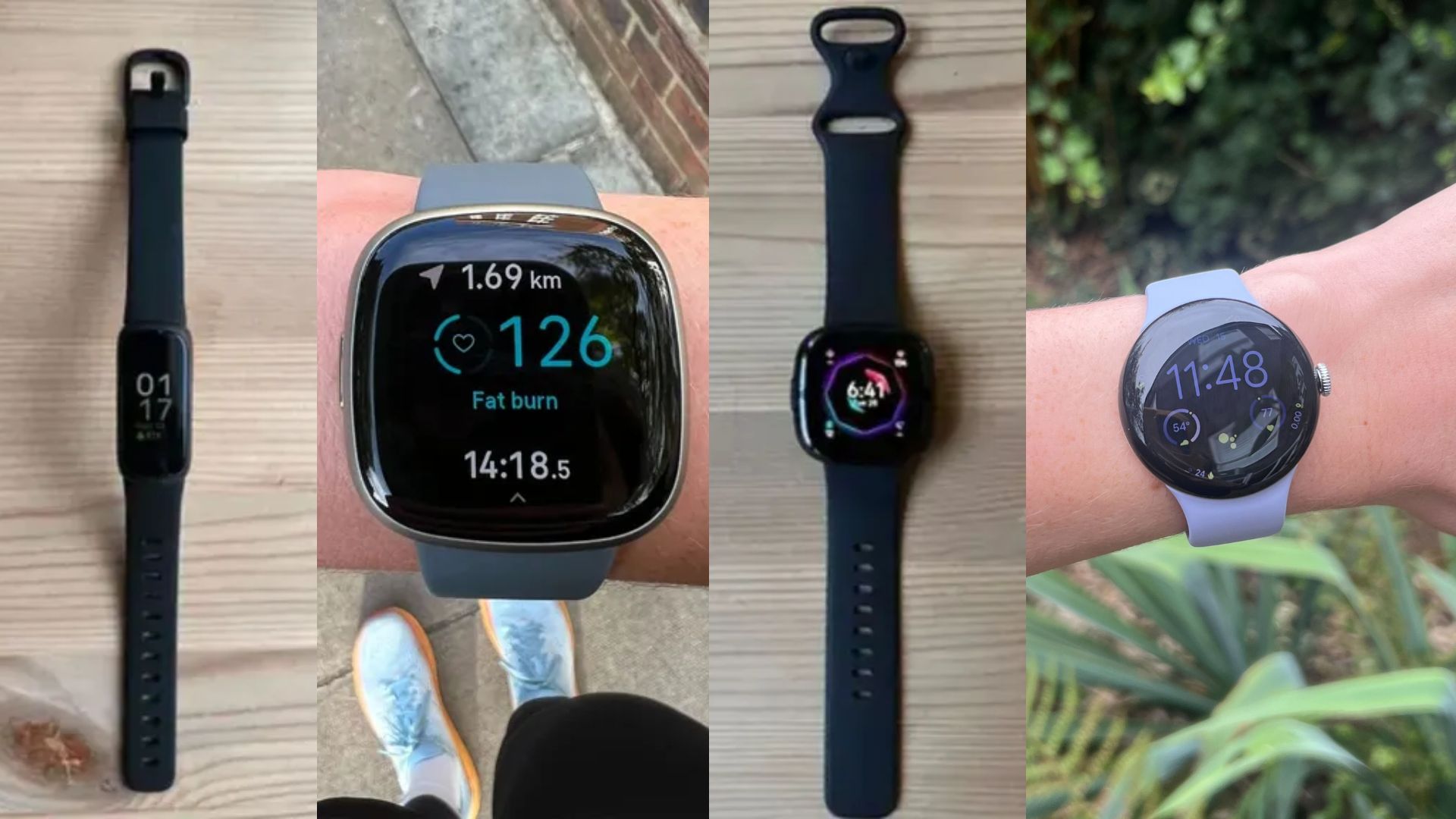
If improving your health and wellbeing is on your 2026 agenda, there’s a Fitbit to suit every goal and lifestyle. Today’s Fitbits come in a wide range of designs and price points, making it easy to find a model that fits your routine – whether you’re just getting started, easing back into exercise, or training regularly and tracking progress in detail.
Fitbit helped shape the fitness-tracking world when it launched nearly two decades ago, offering a smart alternative to the basic pedometer. Since then, the brand has continued to evolve, refining its technology and design to remain one of the most popular and reliable fitness trackers for women. With Google’s ongoing investment powering smarter features and deeper health insights, Fitbit’s ecosystem feels more advanced than ever in 2026.
I’ve spent the past five years testing fitness trackers and smartwatches, and I know what separates a good device from a great one – from comfort and battery life to health metrics and everyday usability. Below, I’ve rounded up the best Fitbits available to help you choose the one that suits your goals, experience level, and lifestyle perfectly.
The quick list
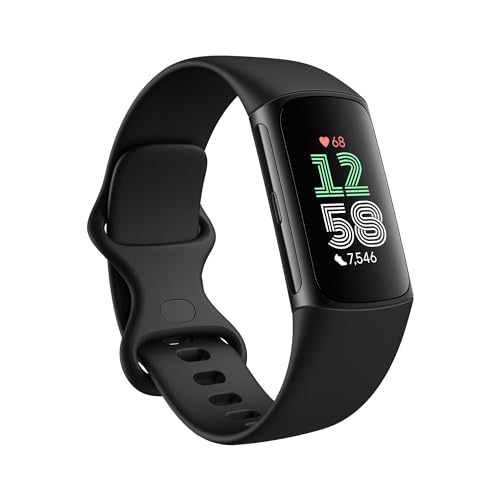
The Fitbit Charge 6 is the latest release from the brand - and the best one yet, combining excellent fitness, sleep, and health tracking with great lifestyle features thanks to the new Google integration. It also has better Bluetooth capabilities than any other model and a battery life to boast about.
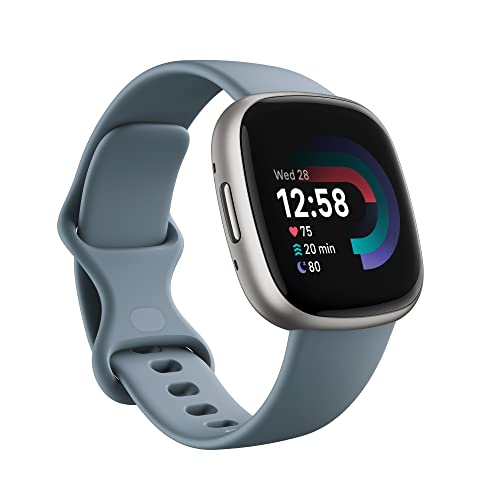
This is one of two types of Fitbit that can rival the impressive Apple Watch in terms of design, featuring a sleek square-face casing and an AMOLED screen. The Fitbit Versa 4 also has 40 exercise modes, sleep and stress tracking, as well as superb lifestyle features like navigation via Google Maps, weather reports, and call and text notifications. This Fitbit is everything plus more.
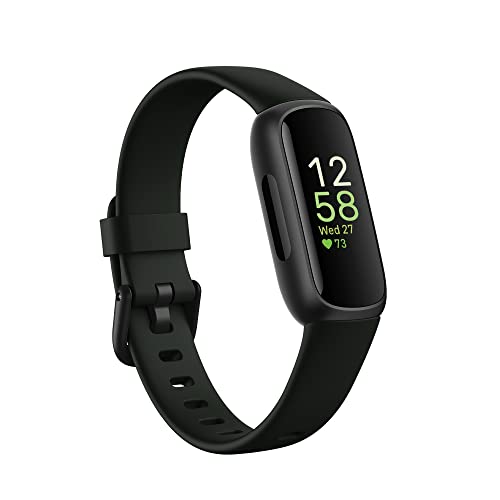
This may be the most affordable Fitbit, but it includes everything you need to track and monitor your health in a slimline, discreet design. You'll be able to read your step count, heart rate, distance, calorie burn, and Activity Zone Minutes in just a few swipes. It's the perfect present to yourself or others this summer.
Load the next 3 products ↴
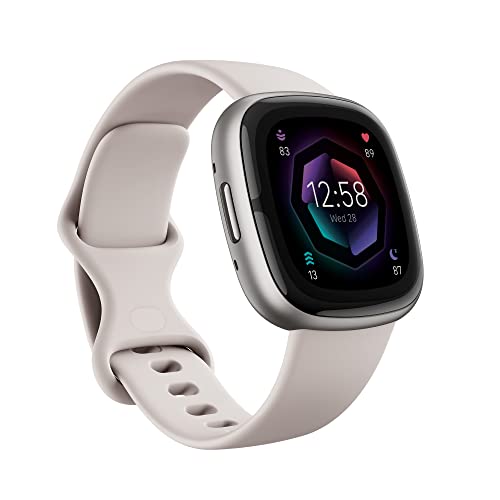
The Fitbit Sense 2 is my top pick if you're happy to spend a bit more and you want to prioritise your holistic health - that's recovery, movement, sleep, and stress. Rather than simply being a fitness tracker, the Sense 2 takes into account many biometrics and sensor data (from skin temperature readings to ECG readouts) to help you keep an eye on your health.
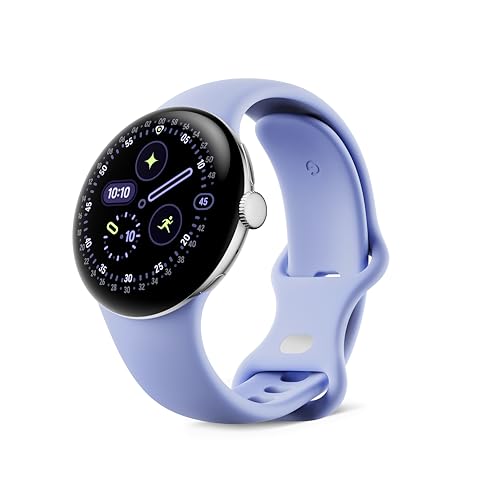
The Google Pixel Watch 4 is the best alternative for those who love everything about Fitbit but want something more, and are prepared to pay a little more too. It's the perfect smartwatch with new and improved AI integration, connectivity to the Google suite (Mail, Maps, and Calendar, for example), better GPS, a brighter screen, and an even sleeker design. It also comes in two sizes.
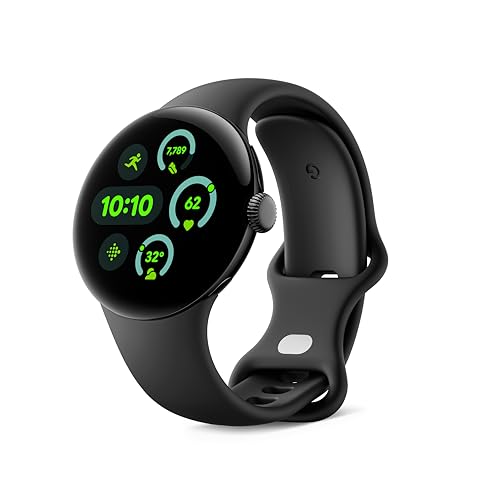
Since the release of the Google Pixel Watch 4, the Pixel Watch 3 has gone on sale, now available for under £250. It offers excellent running data, a bright screen, excellent smartwatch features, and 36 hours of battery life with the saver mode on. There are four colourways available, including sleek neutrals like black and cream.
The best Fitbits as tested by w&h's digital health editor
The best Fitbit overall
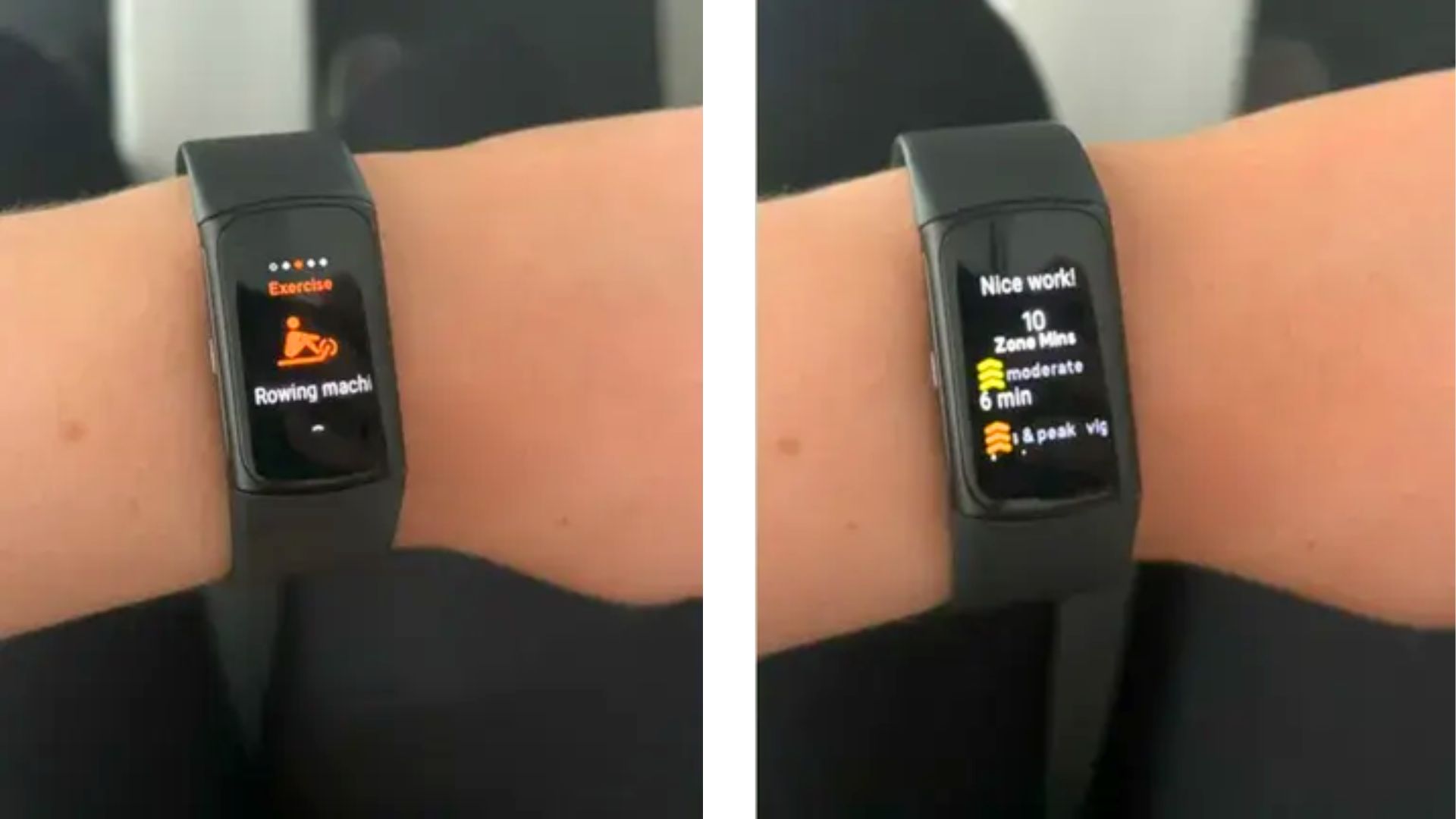
Specifications
Reasons to buy
Reasons to avoid
The Fitbit Charge 6 is the newest Fitbit to date and it quickly caught the attention of fitness enthusiasts thanks to one key upgrade: the heart rate sensor. The brand has said this model offers heart rate monitoring with 60% more accuracy than the Fitbit Versa 5, making it one of the brand's most accurate trackers.
There are 40 workout modes to choose from - from running to paddleboarding - and step count, stress, and sleep tracking along with Bluetooth connectivity to most machines from major brands like Peloton, NordicTrack, and Concept2. This means I could get a direct-to-wrist feed from the machine during my workout, recording my distance, pace, and more without an issue.
You won't miss out on the smartwatch features you'd get on the other models either. The Fitbit Charge 6 has almost complete Google connectivity - unlike other Fitbits on the market. I could access Google Maps, Google Wallet, and YouTube Music from the watch face in testing, making my daily walks to buy coffee easier as well as my longer runs.
While the small rectangular screen doesn't allow for a huge amount of viewing space, it's enough to see the essentials if you're happy to scroll.
Read our full review of the Fitbit Charge 6 here.
The best Fitbit smartwatch
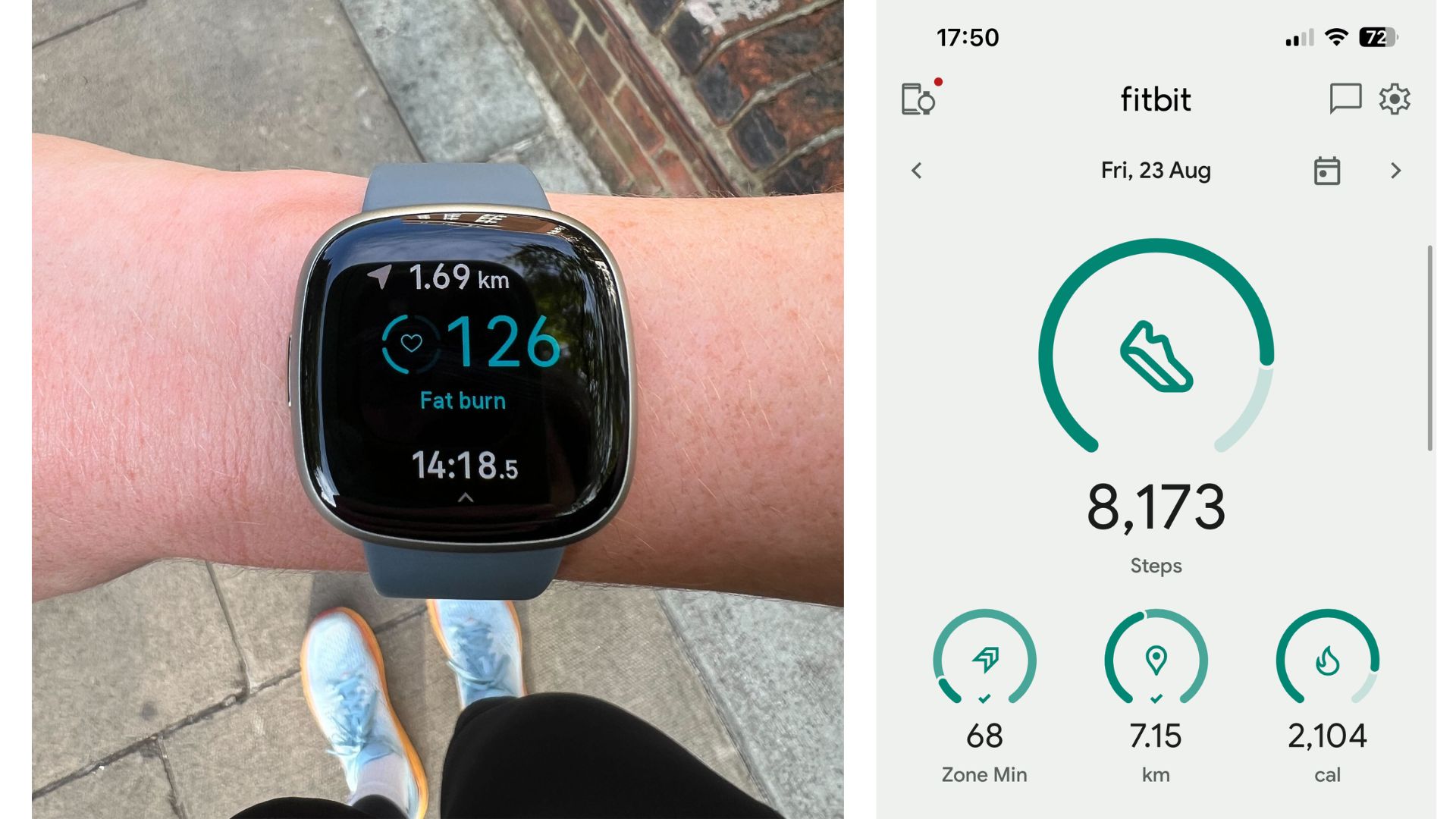
Specifications
Reasons to buy
Reasons to avoid
If you want all the fitness tracking essentials of the Fitbit Charge 6 or Inspire 3 but value a discreet design and smartwatch feature a little more, then the Fitbit Versa 4 could be your watch. With its square-faced design, full-colour AMOLED display, and reintroduction of the side button, it closely resembles the newest Apple Watch and other premium smartwatches.
The Fitbit Versa 4 has been limited by the Google takeover, with the tech giant putting their primary efforts into the Google Pixel 3 most recently (which I have also featured in this guide). So, you'll find some features missing in the Versa 4 that were present in the Versa 3, such as Spotify connectivity and third-party app support. However, the essentials are still there, making it a good choice for anyone who wants a Fitbit smartwatch without the Google Pixel price. I found the phone notifications, timers, alarms, weather reports, Google Maps, Google Wallet, Alexa, and Find My Phone features covered my bases as much as the cheapest Apple Watch would.
With fitness tracking, there are 40 workout modes to choose from and it covers the basics like step counting, sleep tracking, and stress monitoring. But otherwise, the Charge 6 wins out in the Fitbit Versa 4 vs Charge 6 debate as the Versa 4 lacks the Bluetooth connectivity to popular workout machines.
Read our full review of the Fitbit Versa 4 here.
Best budget Fitbit
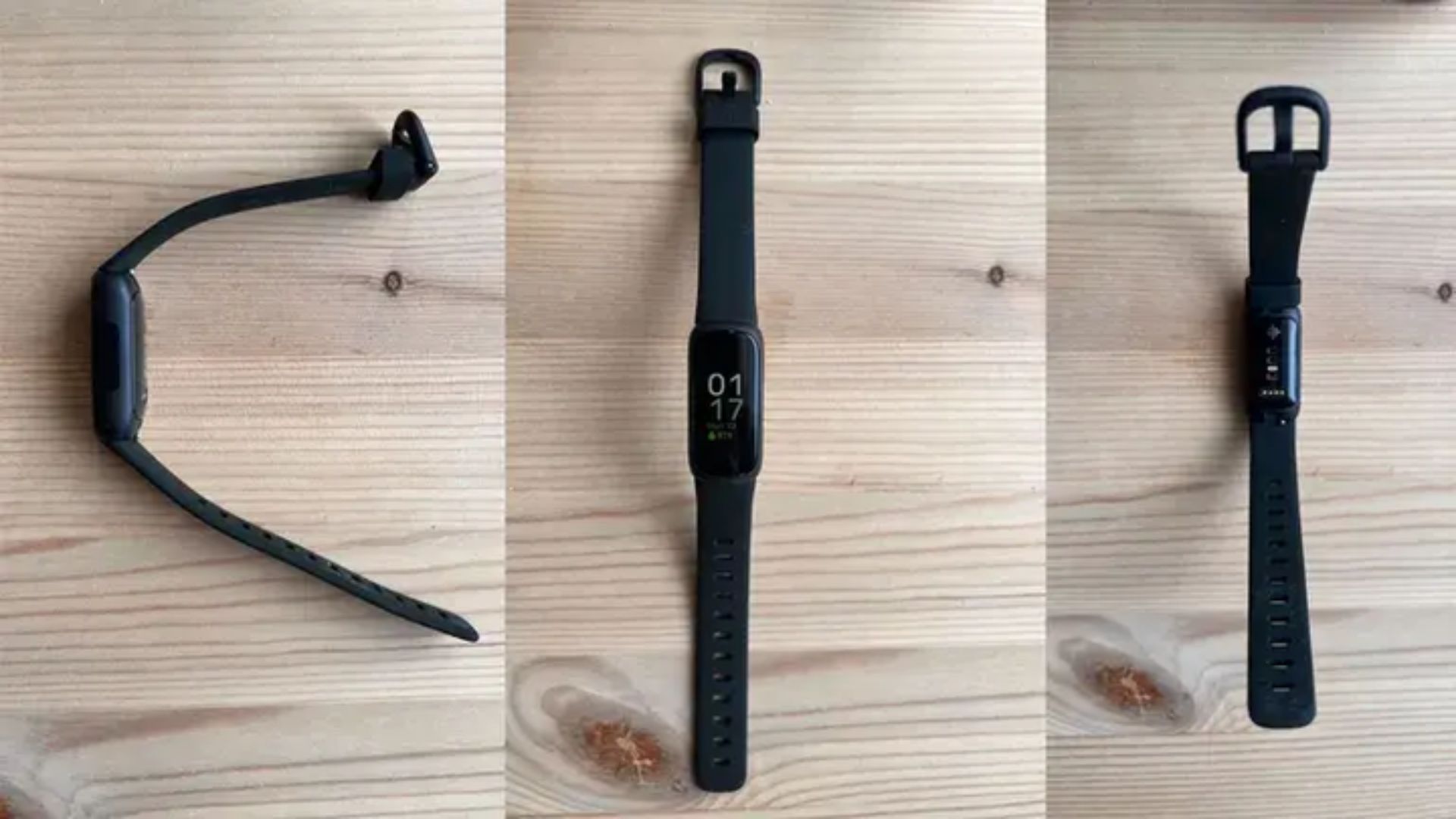
Specifications
Reasons to buy
Reasons to avoid
If you're looking for a simple fitness tracker that covers the basics of fitness tracking, you can't go wrong with the Fitbit Inspire 3. It covers the essentials on a (very) small rectangular watch face - including step count, heart rate, calorie burn, and 20 workout modes with Smarttrack, so you can still record your workout even if you forget to press 'start'. Of these, it's possible to store 6 options on the device, but I found this was more than enough.
It also has SpO2 (blood oxygen) level sensors - but I've never found a real frequent use case for this - and a 'Relax' function that takes you through a short meditation or mindful moment using buzzing to control your breathing. That's as advanced as it gets. Unlike the Fitbit Charge 6, the Inspire 3 doesn't have built-in GPS so you'll need to make sure your phone is connected to your watch when you're on the move.
This is the most basic Fitbit since the Fitbit Luxe, which I've also tested over the years. It's not going to support you through more than your daily 10,000 steps and perhaps a 5km run, but at less than £90 at full RRP and often much less than this in the sale, it's hardly one to complain about. After testing it myself for several weeks, it's enough to revamp your fitness routine and inspire a lifestyle change if you're new to exercise.
Read our full review of the Fitbit Inspire 3 here.
Best Fitbit for sleep tracking
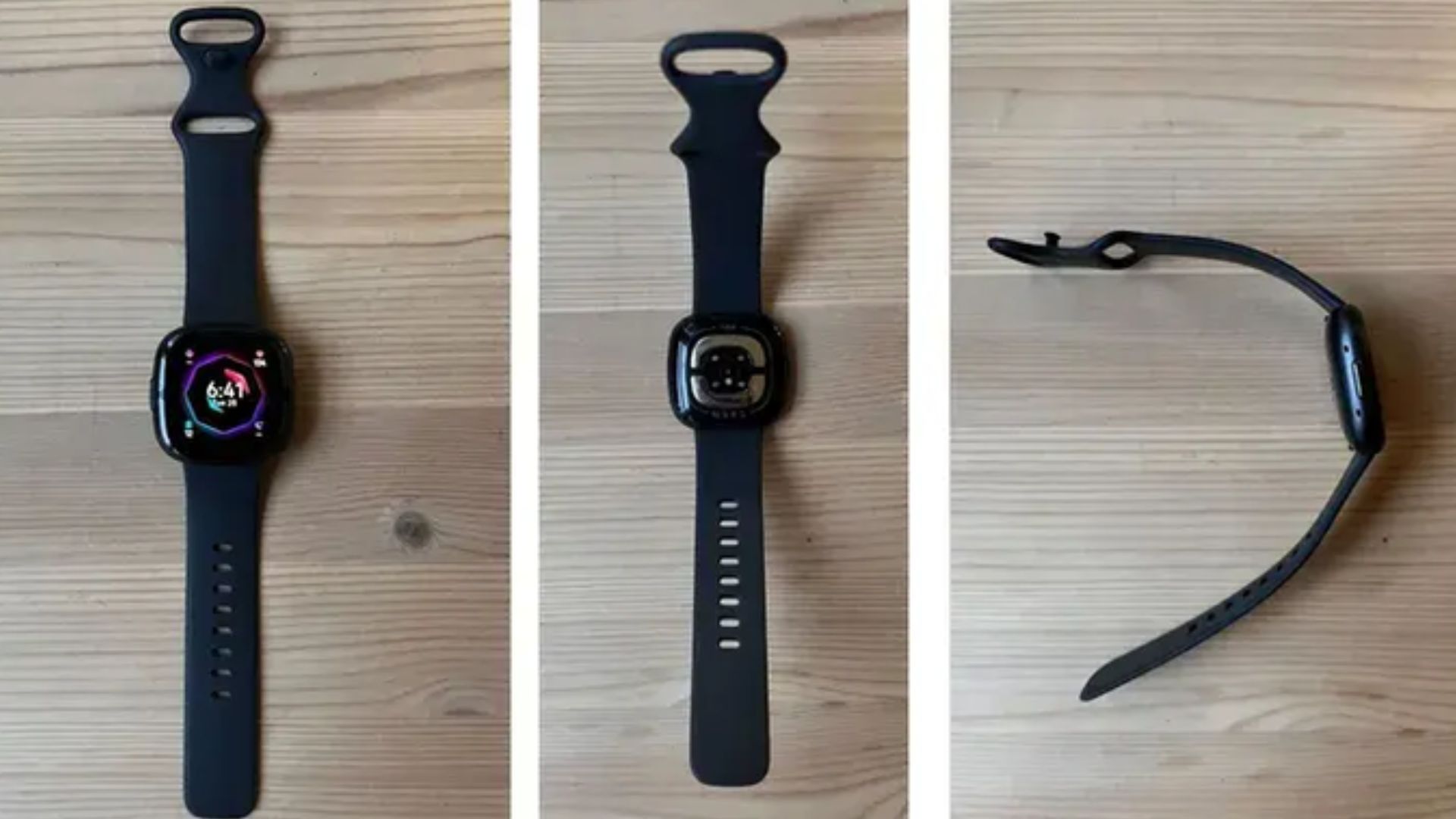
Specifications
Reasons to buy
Reasons to avoid
The Fitbit Sense 2 is the most advanced Fitbit you can buy in 2025. It covers all the essentials and more, with the fitness tracking prowess of the Charge 6 and the lifestyle interconnectivity of the Versa 4. Along with the Versa 4 and Charge 6, it is one of only three Fitbits that offers sleep insights on the wrist, making tracking sleep quality and quantity easier.
Unlike some other Fitbits, you can scroll across the touchscreen to view your sleep insights on the Sense 2, making it the best Fitbit for those prioritising learning how to sleep better this year. You can see your overall sleep duration and your sleep score for the night, and with the 6 months of free Fitbit Premium that comes with the device, you can view your Sleep Profile on the device too. Provided you wear the Sense 2 for at least 14 days a month, you'll see your main sleep characteristics on your wrist whenever you like.
Generally, in testing, I found the Sense 2 smartwatch prioritises complete wellbeing over fitness-specific achievements. Along with improved sleep analysis, there are advanced sensors: blood glucose tracking, an EDA scan app for advanced stress management, and Sp02 blood oxygen level tracking. These are useful for overall health monitoring and great for anyone looking to improve their fitness through better recovery rates, on the lookout for irregular heart rhythms, or monitoring their breathing rate. These are not included in many older versions of the Fitbit but they do feature on the Fitbit Versa 3 and 4, so it's worth weighing up the Fitbit Sense 2 vs Versa 4 before making a final decision.
Along with all these advanced features, it does the basics very well. I found I could start and navigate through any one of the 40+ workout modes with ease and it's still easy to use with a simple navigation system. The addition of a side button was a welcome return, and there is a dedicated page for the element of fitness tracking most important to you, whether that's steps done, calories burned, distance covered, and so on, so you can prioritise what's important to you.
Read our full review of the Fitbit Sense 2 here.
The best alternative Fitbit
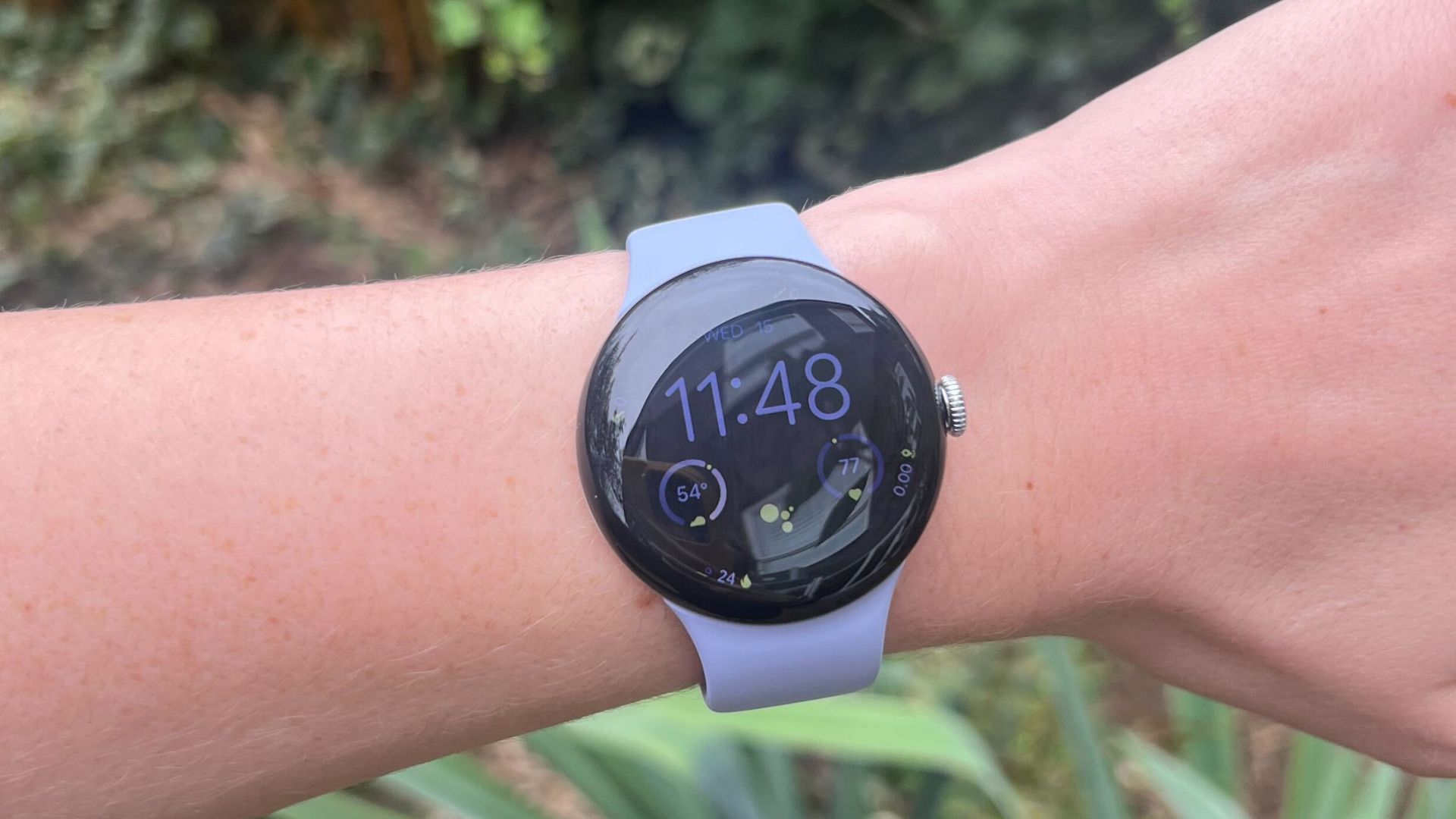
Specifications
Reasons to buy
Reasons to avoid
The Google Pixel Watch 4 is the latest from the Google universe, and if you're looking for a fitness tracker with all the pizzazz of a Fitbit with even better technology, design, and smartwatch features (and you are an Android user), then I'd recommend this watch.
I've been wearing the Pixel Watch 4 for almost a month now through walking workouts, strength training, and Pilates - not to mention my daily commute. It's the perfect companion. As well as the same suite of Google connectivity (Wallet, Maps, Calendar, Mail, etc), the Pixel 4 has AI features that make it a genuine daily assistant. Using Gemini (Google's own AI), the watch can answer specific questions, reply to messages for you, and even track workouts retrospectively if you forgot to start the workout on your wrist. All you have to do is raise your wrist to speak to Gemini, and you can decide how sensitive you want the gesture to be, making this one of the most versatile AI functions on any fitness tracker I've tried.
When it comes to tracking my workouts and improving my fitness with the Google Pixel Watch 4, it came as no surprise that it was a breeze. There are over 40 workout modes to choose from, and the Pixel Watch 4 benefits from a barometric altimeter and dual-band GPS, meaning it'll be more accurate for logging routes, speed, and distance on your outdoor activities - but I even found this watch to be most accurate on the treadmill as well.
Design-wise, this watch looks sleek and futuristic, with an almost bezel-free screen and ultra-bright, 3,000-nit display. However, I was pleased to see it can go to as low as 1 nit for cinema lowlights or nighttime wear, as I've struggled with bright Fitbits waking me up in the night before.
For more information, read my full Google Pixel Watch 4 review
Best on sale
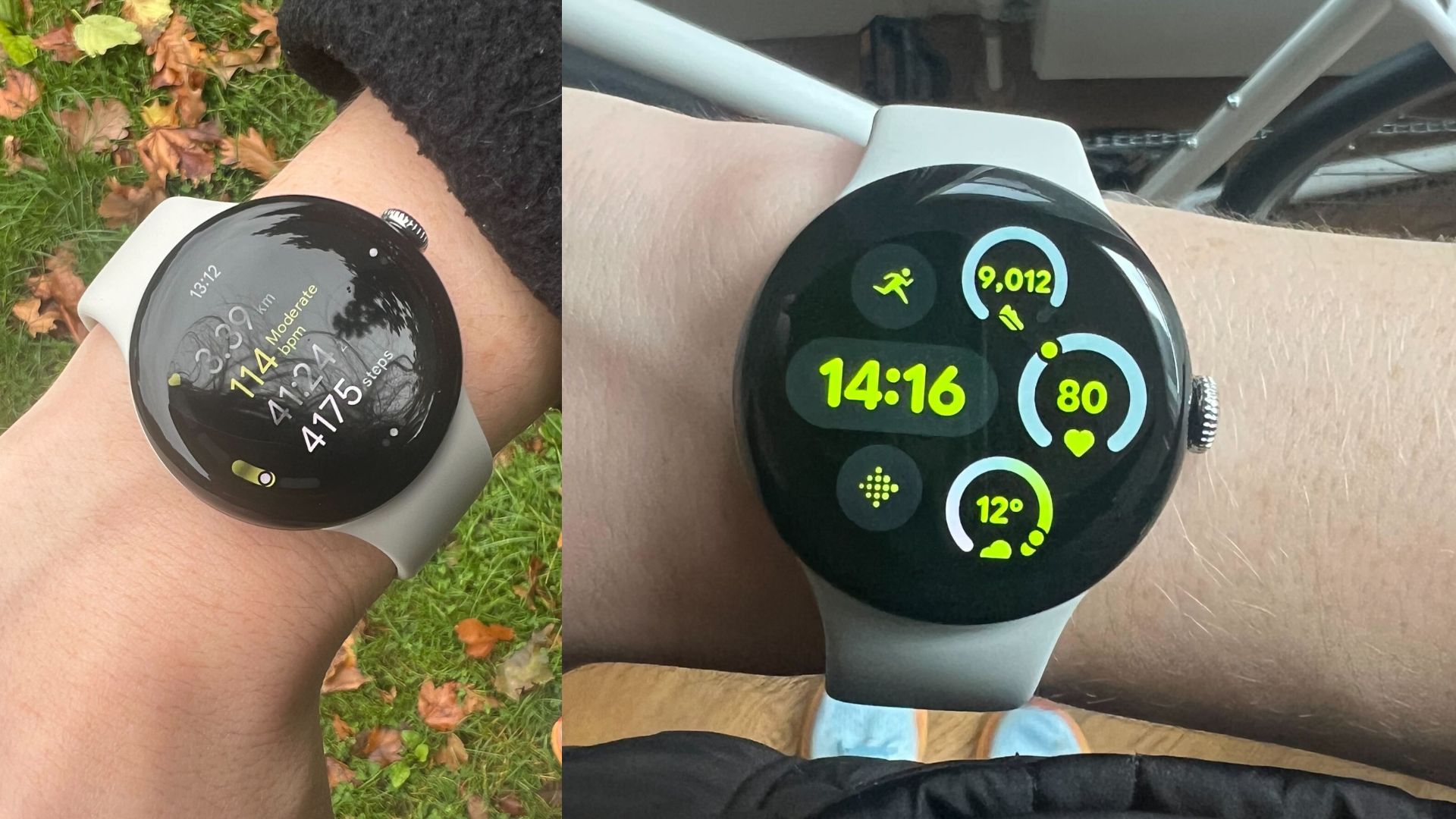
Specifications
Reasons to buy
Reasons to avoid
The Google Pixel Watch 3 is the best watch in the Fitbit family to buy on sale, now under £250, thanks to the release of the new Google Pixel Watch 4. While technically a Google device rather than a Fitbit, since the tech giant's buyout of the brand in 2021, many of the most loved Fitbit features are now available in these watches.
When it was first released, I tested the Google Pixel Watch 3 for several weeks - and it was so good I almost considered switching my iPhone to an Android full-time. The watch has clearly been designed to rival the likes of the Garmin Forerunner 165 and Coros Pace 3, with plenty of running-specific features like Cardio Load (which predicts how ready you are to run again based on your recovery) - but there are still almost 40 other workout modes to choose from, should a 10km run not be in your future.
The GPS was reliable, and the quick-start workout profile on the homescreen was one feature I loved. This customises itself based on the workout profiles you use most often. For example, my current main activities are running, strength training, and walking, so I saw this quickly change to offer me these every time I worked out. I love how intuitive this watch is - nothing feels difficult. Everything is available with just a swipe or touch. Much like the Charge 6, you can also connect it to various workout machines like a Peloton bike or Nordic Track treadmill.
But along with the health and fitness tracking, which includes sleep and stress insights, you'll find more than the basic set of smartwatch features here. There's total Google integration, which is most beneficial for those who already use programmes in the Google family - such as Google Calendar, Wallet, Mail, Maps, etc. On one train journey, I was able to check my emails, see my schedule for the day, pay for a coffee, and follow a route via Google Maps once I got off the train. You can even control smart home devices from an app on this watch. I am very impressed.
However, the Google Pixel Watch 4 is the upgrade. This Pixel Watch 3 only offers 36 hours of battery life in Battery Saver Mode (24 hours in always-on mode), doesn't have dual-band GPS, has no features for voice commands, and has fewer AI features. If you're looking for the best of Google, it's got to be the Pixel Watch 4.
Read our full Google Pixel Watch 3 review here.
How I tested the best Fitbits
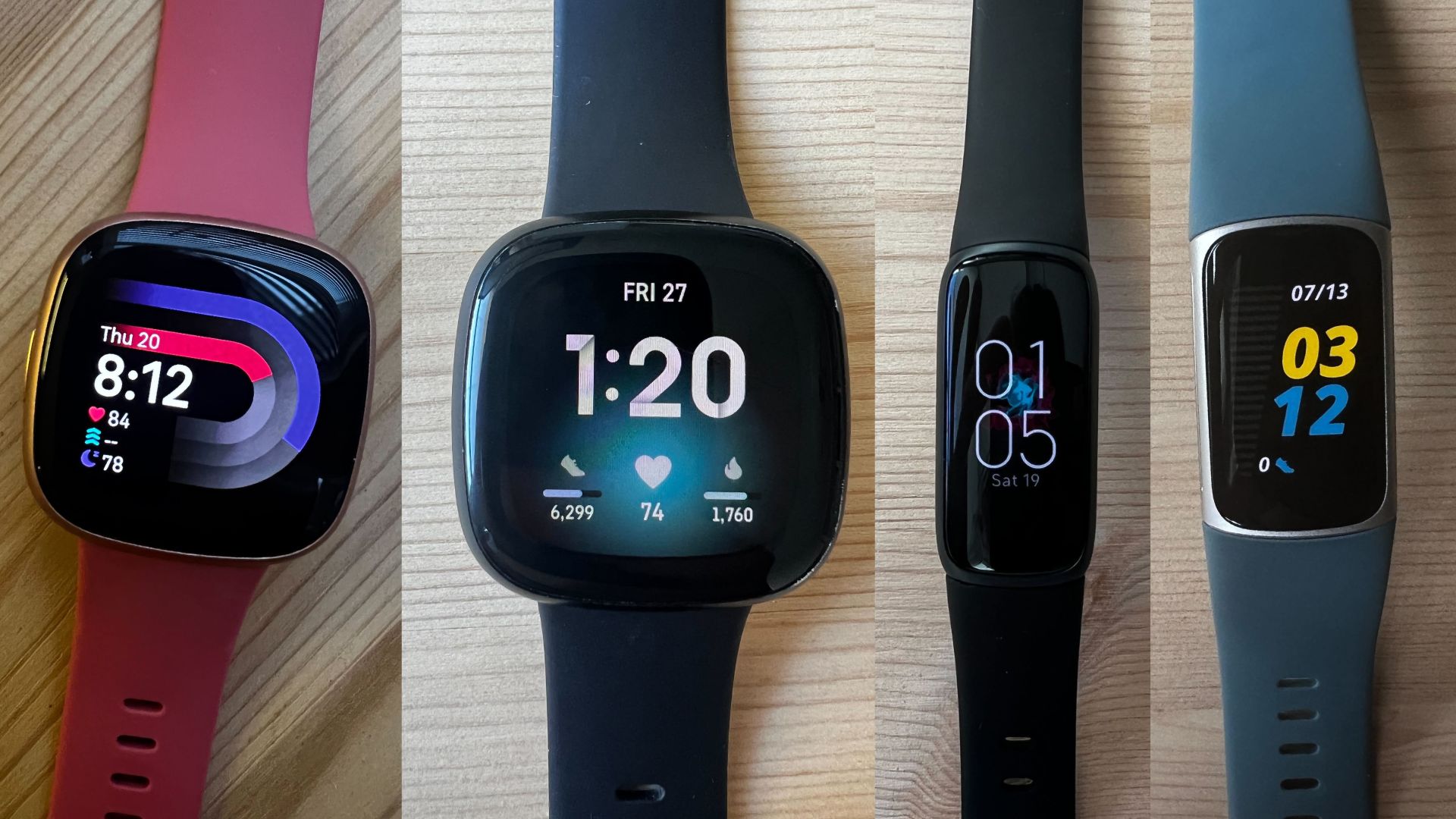
A range of the best Fitbits, as tried and tested by Digital Health Editor Grace Walsh.
After consulting the experts on important factors to consider, I tested each Fitbit over a number of weeks through various workouts from strength training to spin classes, hiking, running, and more daily activities, assessing each model on a range of factors that impact day-to-day use.
I also reviewed the Fitbits alongside other fitness trackers for comparison. For example, I reviewed the Google Pixel Watch 4 against the Garmin Vivoactive 6, one of the best Garmin watches.
Kate Rowe-Ham, a level 3 qualified personal trainer, specialist women's health coach, and founder of Owning Your Menopause, was one of the professionals I spoke to. She is also a fan of the brand. "What is a Fitbit? These devices allow you to track important benchmarks in your fitness, like your daily step count. Once you can see how you're doing in various areas each day, such as your sleep and activity, you have a clear benchmark to improve on moving forward," she says. "As the saying goes, what gets measured gets managed and over time, you'll be able to spot any trends that may be affecting your wellbeing."
When testing the best Fitbits, I considered the following:
- How easy it was to use: A tracker that charges quickly, has a long-lasting battery life, and is easy to navigate during sweaty workouts is key. It's where screen size and responsivity play a huge role, so I tested to see how easy each of the best Fitbits was to use.
- How comfortable it was to wear: I noted how comfortable each of the smartwatches and trackers was to wear - no one wants a wristband that rubs uncomfortably against the skin or catches on clothing after all.
- The features it offers: There are so many Fitbit models out there now - some people will want a Fitbit that offers features such as contactless payment, on-screen text messages, and music streaming. Others might want a Fitbit that tracks daily activity and sleep patterns, so we've tested a range of the best Fitbits with different features.
- Accuracy of heart-rate monitoring: More advanced models will be able to track in more detail, comparing where your current heart rate sits against your usual maximal heart rate (MHR) to assess how hard you’re working at any given point.
- Waterproofing: Most Fitbit models are swimproof and waterproof to 50m but this is important to consider. "If swimming forms a part of your exercise routine, or even if it's just a recreational activity you enjoy," he says.
- Built-in or smartphone GPS: "Some models include GPS built-in, which is more accurate for tracking distance than devices that use an accelerometer, such as many smartphones."
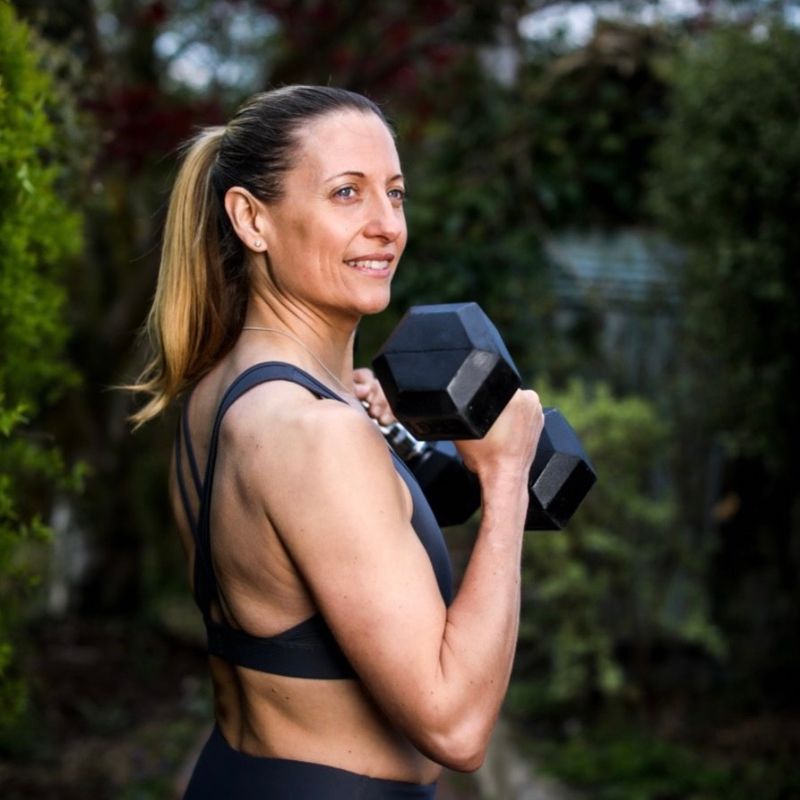
Kate Rowe-Ham is a level 3 qualified personal trainer specialising in helping women reach their fitness potential. As the founder of Owning Your Menopause, she prides herself on helping clients find a love for exercise, giving them the tools they need to adopt a sustainable approach to exercise with long-lasting results.
I also tested...
I've tested many other Fitbit devices over the last five years, including the Fitbit Charge 5, Versa 3, the Fitbit Luxe, the Charge 4, and the Inspire 2. However, either the device is no longer available to buy online, it's been surpassed by other features on newer models, or it's still available, but I'd consider it overpriced for the features in 2025.
Last year, Google announced that it would no longer produce new versions of the Fitbit Versa or the Fitbit Sense, the brand's own smartwatches. Instead, the focus would be on fitness trackers (the Charge and Inspire ranges) and the Google Pixel collection. So, if you're looking to snap up a Fitbit smartwatch, now is the time.
Why are Fitbits good fitness trackers?
It's widely acknowledged that very few (if any) fitness trackers offer 100% reliable step-count and calorie-burning statistics. However, Fitbits are one of the best fitness trackers because they hold users accountable and can be a great source of workout motivation.
"Using a fitness track can be beneficial if you struggle with motivation and accountability," says Rowe-Ham. "They are also particularly beneficial for those living with any conditions where exercise will play an integral role in managing any symptoms."
When it comes to improving your motivation, you can track your progress with a pick of the best Fitbits. "For many seeing this will help keep you on track to maximizing your wellbeing," she says. "Often trackers will have challenges alongside which will hold you accountable and slowly begin to create habits you want to keep."
Are Fitbits waterproof?
All of the best Fitbits are water resistant up to 50 meters. "They're designed to be swim-proof and stand up to even the sweatiest of workouts," the brand says, making them perfect for exploring all the benefits of swimming. However, no Fitbit will be suitable for diving or deeper submersion than this and the brand warns against wearing the device in any warm environment, like a hot tub or sauna.
Some Fitbits, such as the Versa 3, have a swim lock so you can go swimming or take the device in the shower without an issue. Having the swim lock enabled isn't essential, it will prevent the water from acting on the touchscreen and navigating around the watch accidentally. Most of the device's settings and metrics are controlled via the app, like changing the time on a Fitbit, so you don't have to worry about these being impacted by the water.
The Ace is the only Fitbit that's not water-resistant. This older model, which largely isn't available for sale nowadays, is designed to withstand splashes, spills, and sweat rather than a dip in the pool. Some straps are also not water-resistant but can withstand sweat. These include:
- Woven straps (Sense and Versa 3)
- Hook and Loop bands (Charge 5)
- Knit bands (Sense and Versa 3)
If you want a completely water-resistant band, opt for the Infinity band that comes included when you buy one of the best Fitbits, or the Sports band, which is more breathable.
Fitbit is also keen to emphasize that mishandling the device in particular ways, like dropping it, exposing it to perfumes including soap and sunscreen, and high-velocity water pressure will also reduce the waterproof capacity of the device.
What's the difference between a Fitbit smartwatch and tracker?
The difference between a Fitbit fitness tracker and a smartwatch these days is basically in the design. Fitness trackers, like the Fitbit Charge 6, have a slimline design that stays out of the way while you're on the move and it focuses on fitness essentials on screen, such as heart rate, steps, pace, GPS data, and so on.
A smartwatch, like the Fitbit Versa 4 or Sense 2, has a notably more square-shaped, larger screen and also offers lifestyle features, such as a weather report. Many of them connect to the best fitness apps too - although with the introduction of the Fitbit Charge 6, that's really no longer a big difference.
Are fitness trackers worth it if smartwatches do almost the same thing? Absolutely. Many self-labelled Fitbit fitness trackers will focus more on exercise comparatively to lifestyle assistance features, so if your goal is a fitness-related one, it's probably better to opt for a fitness tracker over a smartwatch.
Sign up to our free daily email for the latest royal and entertainment news, interesting opinion, expert advice on styling and beauty trends, and no-nonsense guides to the health and wellness questions you want answered.

Grace Walsh is woman&home's Health Channel Editor, working across the areas of fitness, nutrition, sleep, mental health, relationships, and sex. She is also a qualified fitness instructor. In 2025, she will be taking on her third marathon in Brighton, completing her first ultra marathon, and qualifying as a certified personal trainer and nutrition coach.
A digital journalist with over seven years experience as a writer and editor for UK publications, Grace has covered (almost) everything in the world of health and wellbeing with bylines in Cosmopolitan, Red, The i Paper, GoodtoKnow, and more.